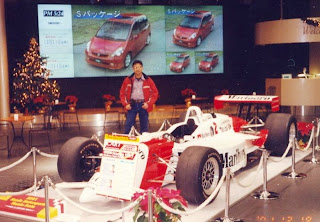Two of the greatest problems facing managers everywhere are cutting costs and managing knowledge. While Western companies have been making the biggest strides in those areas, Japanese managers can still teach them a trick or two.
On the cost-cutting side, Western companies are wearying of re-engineering, downsizing and delayering. So far, Japanese companies have been noticeably more successful than their Western peers at controlling costs without tearing out the innovative heart of a business. 
Similarly, the Japanese reluctance to sack middle managers willy-nilly may also work in their favor. Yes, Japanese firms have often been slow to separate the wheat from the chaff. But in Japanese eyes, the middle manager is not an expendable link in the chain of command but the possessor of a valuable perspective on a company's business. In particular, the middle managers tie together two visions -- the strategic view of senior managers and the detailed operational view of front-line workers.
The other way in which the Japanese can help Western firms -- managing knowledge -- may appear to be an unlikely candidate, given that leadership in so many knowledge-intensive industries, from software to entertainment, belongs to America.
Nevertheless, a new generation of Japanese management thinkers, particularly Ikujiro Nonaka and Hirotaka Takeuchi of Hitotsubashi University, argue that the Japanese still have certain advantages.
Mr. Nonaka and Mr. Takeuchi start by admitting that Western companies are well ahead of the Japanese in managing the sort of formal, explicit knowledge that can be faxed or E-mailed. But, they argue, the Japanese are better at managing tacit knowledge -- the informal occupational lore, which is generated by workers grappling with everyday problems and passed on in cafeterias and at water coolers.
This skill allows companies to tap into the insights of the bulk of their employees, and insures that one man's hunch can become an entire firm's competitive advantage.
The most important trick is to encourage workers to spend as much time as  possible together, informally as well as formally. Companies routinely divide workers into teams, often expecting them to stick with the same colleagues for years on end. New recruits work closely with "Mentors" or "Team Leaders," learning far more from them than they do from formal training courses.
possible together, informally as well as formally. Companies routinely divide workers into teams, often expecting them to stick with the same colleagues for years on end. New recruits work closely with "Mentors" or "Team Leaders," learning far more from them than they do from formal training courses.
After-work drinking sessions and weekend retreats at hotels play an important part in promoting informal understanding. Some companies even talk of "Nommunication," a term that joins the Japanese word for drinking (nomu) with communication.
Honda and Canon both make frequent use of "Brainstorming camps" --  informal meetings in country inns in which project-development teams (and anybody else who wants to contribute) work intensively, but also drink sake, share meals and even bathe together in hot springs.
informal meetings in country inns in which project-development teams (and anybody else who wants to contribute) work intensively, but also drink sake, share meals and even bathe together in hot springs.
The point about tacit knowledge is that it is always there: a company does not have to create it, but rather remove the barriers that surround it.
Consider how that is done at Kao, a chemicals and cosmetics company. For starters, Kao holds all of its meetings in the open, allowing anybody to drop in, and half the space on the executive floor is given over to a "decision-making room." Kao's quarterly R.&D. conference regularly attracts some 1,800 people (out of a work force of 7,000). The company also encourages customers to phone in with suggestions and complaints, and receives some 50,000 calls a year. And it set up a computer network that gives all employees, however lowly, access to all but the most sensitive personal information. Even the president's expense account is on public view.
One problem with implicit knowledge is that it is difficult to push across borders, even when people share the same language. Yet while Japanese companies have a fairly bad record at extracting ideas from their foreign subsidiaries, they have also been fairly capable teachers -- particularly when it comes to teaching tacit knowledge about manufacturing.
In places as far apart as Wales and Tennessee, local workers are using "Japanese" methods to produce Toyotas and Nissans for their domestic markets. And they have learned their lessons well, often giving plants in Japan a run for their money when it comes to quality and efficiency.
Finally this is the Last & the most important part of the series "Japanese Management : Art & Practice" which i shared during last 2 months.
Enjoy, Learn & Practice this Art of Management both in your professional & personal life.
Cheers ....!!
Saturday, May 31, 2008
What Japan Can Still Teach the West < Part-8 / Japanese Management : Art and Practice > ...
Subscribe to:
Post Comments (Atom)






No comments:
Post a Comment